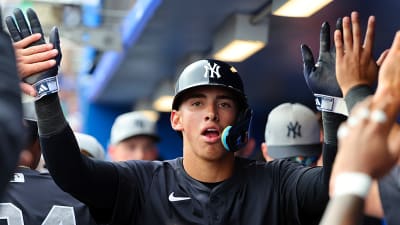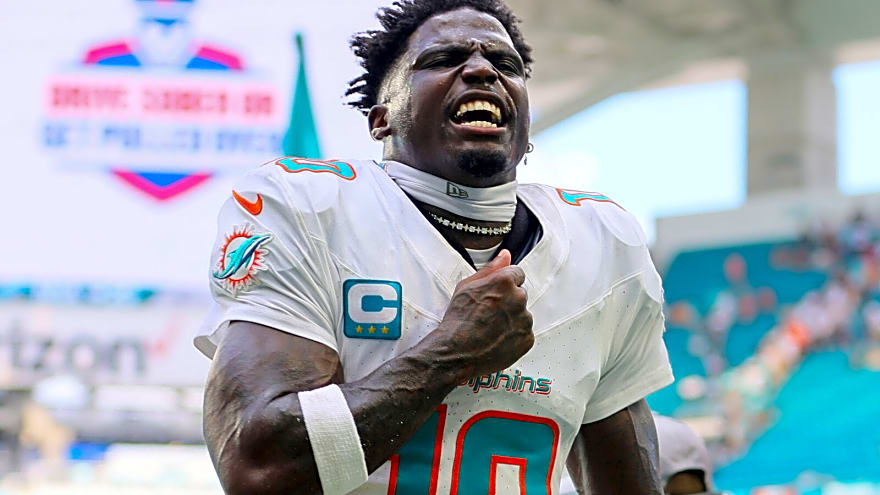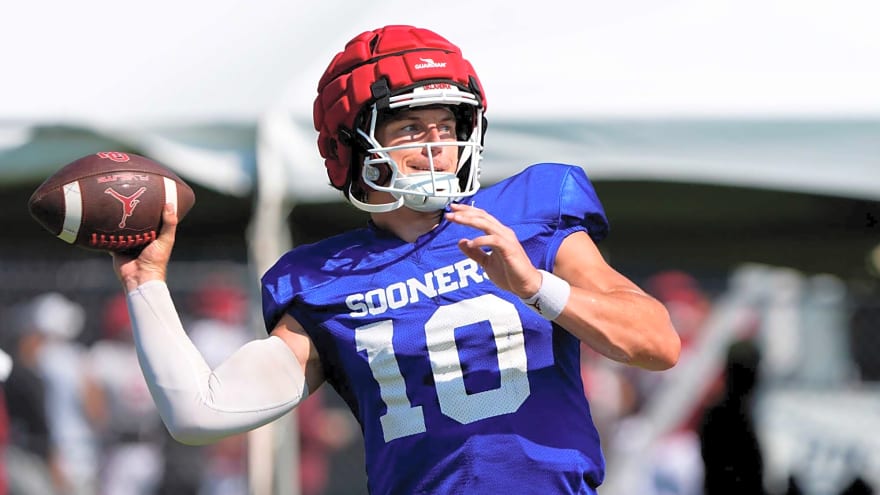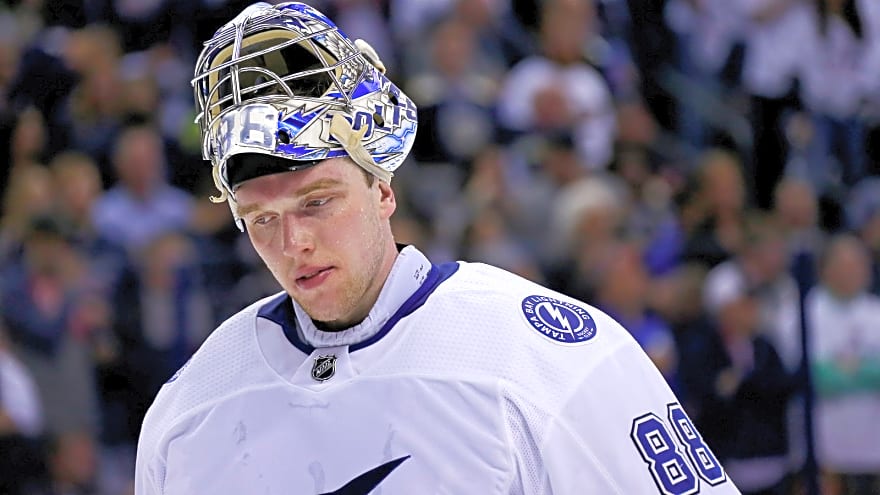
This isn’t just a format debate—it’s a fight over who gets to matter in college football’s future.
“We’re going to war.”
That quote from a Big 12 athletic director, delivered in response to the SEC and Big Ten’s push for a self-serving College Football Playoff format, sounds dramatic. Maybe even reckless.
But at this point in the sport’s evolution—or rather, de-evolution—it might be the only sane response left for those still trying to preserve the last threads of competitive integrity in college football.
Because this isn’t just about how many teams each league gets into a 16-team bracket. It’s not even just about money, although, of course, it always comes back to that. This is about the future of the sport itself. Who controls it. Who’s included. Whether college football becomes a professionalized, monopolized product controlled by two corporate mega-leagues, or remains a national, culturally diverse ecosystem where competition still matters.
The 4–4–2–2–1 Format Is a Power Grab Disguised as Logic
The SEC and Big Ten have made it very clear: they want four automatic playoff bids each. Under the 4-4-2-2-1 model, they’d claim half of the field every year—before a single down is played. The ACC and Big 12? Just two apiece. The rest of the country—Notre Dame, the Group of Five—would fight for scraps. It’s a structure that rewards consolidation, not competition. And it’s dressed up as a “logical” next step.
To be clear: the SEC and Big Ten aren’t wrong to leverage their brands, TV deals, and track records. As Saturday Down South’s Connor O’Gara points out, those leagues have dominated the sport’s biggest stages.
Since 2000, 22 of the 26 national champions have come from schools that now reside in the SEC or Big Ten—but dominating recent history doesn’t justify locking the door behind you.
If past dominance is the only logic, we’ll never get another TCU. Never get another Boise State. Never get a team from outside the blue-blood circle that climbs its way to the top and makes people believe. And if there’s no room for belief in this sport anymore, what’s the point?
What the Other Conferences Are Really Fighting For
That’s why the ACC, Big 12, Notre Dame, and Group of Five have to dig in—and fight. They’re not trying to preserve amateurism. That ship has sailed. They’re trying to preserve access. Relevance. The possibility of upward mobility. In an era where revenue sharing is about to pump $20 million annually into rosters at major programs, the only way to keep the sport from splintering entirely is to protect the postseason from being hijacked.
This playoff fight is just the latest front in a broader realignment of power. Behind the scenes, the SEC and Big Ten are inching toward their own governance structure. They’re backed by private equity firms. They’re talking to Goldman Sachs. They’re preparing to split off from the NCAA entirely—or at least, to neuter it completely.
The Big 12, ACC, and Notre Dame are now the last forces of resistance. They’re not perfect. They’re not saints. But they might be the last institutional hope for a playoff format that stands on equal representation and earning your way in. A format that still reflects the full scope of college football, not just its wealthiest corners.
There’s No Room Left for Polite Resistance
Going to war might mean legal battles. It might mean drawing lines in CFP boardrooms or withholding votes on format approval. It may involve public pressure campaigns, congressional lobbying, or even media muckraking—something the Big 12 has had to deal with for years now.
Whatever the route, there’s no longer room for polite negotiation. The SEC and Big Ten made their move. Now the rest of the sport has to decide if it’s willing to fight back—or fade into irrelevance.
No one is asking to go back to the BCS. No one’s asking to freeze the SEC or Big Ten out. But college football has always thrived on the idea that a team from anywhere—Manhattan, Lubbock, Ames, Morgantown—can dream big and play for everything. Strip that away, and you’re left with a glossier version of the NFL: fewer teams, higher salaries, bigger brands, fewer reasons to care.
This Isn’t Just About Seeding. It’s About Who Gets to Matter.
This is about way more than seeding matchups or automatic qualifiers. This is about whether college football becomes a sport for the many, or one controlled by the few.
And if the Big 12 has to go to war to make that case?
So be it.
More must-reads:
- Notre Dame believed to be trending toward surprise choice at quarterback
- Oregon suspends former five-star WR recruit indefinitely
- The '2023 NFL AP second-team All-Pro' quiz
Breaking News
Trending News
Customize Your Newsletter
 +
+
Get the latest news and rumors, customized to your favorite sports and teams. Emailed daily. Always free!
TODAY'S BEST

College Football Insider Predicts SEC Powerhouse Will Fire Head Coach and Lose Top Recruit to Rival

Notre Dame believed to be trending toward surprise choice at quarterback
The quarterback battle for Notre Dame is set to come to an end shortly, and it might be a surprise considering how the national media predicted the race to finish. Per Eric Hansen of On3, head coach Marcus Freeman is set to name the starting quarterback by Sunday when he meets the media. The Irish are still letting the quarterback battle play out until then, but it appears sophomore quarterback Kenny Minchey is the favorite to start at Hard Rock Stadium against the Miami Hurricanes on Aug. 31. Minchey has shown improvement in numerous areas throughout camp, and he has the edge on freshman quarterback CJ Carr in what is believed to be the final week of the competition. "As of Wednesday, the line between 1 and 2 remained blurred," Hansen wrote. "The tiebreaker may eventually go to Minchey, per the source, because of his ability to be a true running threat and offensive coordinator Mike Denbrock’s preference to have that element to put pressure on opposing defenses. "But he also has a preference for QBs who can transcend adversity, and the training camp phase was choreographed to test precisely that. While both contenders responded persistently in a manner that defies their inexperience, Minchey has been exceptional in that regard." Throughout the summer, ESPN writers such as Bill Connelly and Mark Schlabach have written as though it were a forgone conclusion that Carr would win the battle in training camp. However, Minchey appears to be a natural fit for how offensive coordinator Mike Denbrock likes to scheme against a defense. He helped dual-threat Jayden Daniels earn a Heisman Trophy in 2023 and took Notre Dame to a national championship appearance with Riley Leonard. The battle isn't over, but the edge appears to be running Minchey's way.

Browns' Shedeur Sanders could be losing valuable opportunity after injury update
Just when it seemed everything was going right for Shedeur Sanders, the Cleveland Browns' rookie quarterback caught an unlucky break on Wednesday. The 23-year-old QB was sidelined during Wednesday's joint practice with the Philadelphia Eagles after suffering an oblique injury. Per Kelsey Russo of the team website, the 2025 fifth-round pick won't practice Thursday and is considered day-to-day. He is deemed unlikely to play in Saturday's preseason game against Philadelphia, scheduled for 1 p.m. ET on NFL Network. Before Wednesday's practice, Browns head coach Kevin Stefanski confirmed rookie QB Dillon Gabriel will start against Philadelphia as long as he's healthy enough to play. The 2025 third-rounder missed Cleveland's preseason opener against the Carolina Panthers because of a hamstring issue. However, Stefanski previously said Sanders would get more reps this week after a solid preseason debut. The former Colorado Buffaloes star received the start in the 30-10 win over Carolina, going 14-of-23 passing for 138 yards and two touchdown passes. Not playing against Philadelphia could disrupt Sanders' momentum. More importantly, it may eliminate another opportunity for him to overtake Gabriel in Cleveland's four-way QB competition. Sanders is listed as the Browns QB4 behind Gabriel, Kenny Pickett and Joe Flacco on the team's unofficial depth chart. Despite questions about Gabriel's size (5-foot-11, 205 pounds), the coaching staff seems to favor him over Sanders. Earlier this offseason, Gabriel's processing speed reportedly impressed Browns coaches, giving him an edge over Sanders. The former Oregon Ducks star also received reps with the first-team offense during OTAs and mandatory minicamp, while his fellow rookie didn't. If Gabriel plays well against the Eagles, that would continue to affirm the coaching staff's confidence in the 24-year-old QB. Neither Sanders nor Gabriel is expected to be the Week 1 starter for the Browns. It's likely going to be Flacco, who helped Cleveland make the playoffs in 2023 when he went 4-1 during a late-season stretch. Still, another solid preseason showing could help Sanders position himself to replace 40-year-old Flacco in the future. With the setback, it may take more time to climb the depth chart.

Even Mike Macdonald couldn't rattle Sam Darnold, Seahawks insider reports
With so much riding on Sam Darnold, the Seattle Seahawks are doing everything they can to make sure he's ready for the season itself. In such cases, having a defensive mastermind like Mike Macdonald as a head coach comes in handy. Gregg Bell of the Tacoma News Tribune detailed how Macdonald has tested Darnold throughout training camp with various pressures and coverages. While Macdonald's defense gave Darnold trouble early on, but the quarterback has adjusted and is now throwing the ball with ease. Sam Darnold figuring out Mike Macdonald's complex defense "Darnold has gotten accustomed to Macdonald’s tricks along the defensive front," Bell wrote. "The quarterback is now anticipating rookie safety Nick Emmanwori really being an outside linebacker off the edge, about to blitz him. Darnold is figuring out Macdonald’s shifting of defensive backs, from what looks like man-to-man coverage at the snap to what is in fact zone, and vice versa. "Darnold is acing it. After a spate of interceptions early in camp, he hasn’t thrown one in practice since Monday, Aug. 4, an overthrow that landed into the arms of safety D’Anthony Bell. He’s looking more like the quarterback who went 14-3 with 4,300 yards passing and 35 touchdowns in a breakout 2024 season with Minnesota. He’s looking more like the QB the Seahawks traded Geno Smith to get." Even Macdonald conceded that Darnold has figured out his defense, noting how his quick release is giving the unit trouble. “It’s a pain in the butt to pressure you, because the ball’s out and you’re making (quick throws)," Macdonald told Darnold during Sunday's practice. “It’s hard to get to you.” What version of Darnold the Seahawks are going to get is crucial for their season as a whole. Will they get the version that excelled last season with the Minnesota Vikings, or will they get the career journeyman he was before that? Only time will tell for sure, but they're doing everything they can to bring out the best version of him. “I thought we’ve had a really good few weeks,” Darnold said. “Just awesome to see where the team has come from the beginning of training camp.”

Celtics' ownership move should concern Lakers governor Jeanie Buss
Lakers governor Jeanie Buss is supposed to remain in charge of the team for years even after the sale. Given what just happened with the Boston Celtics, it might only be months. When the Grousbeck family sold the Celtics for $6.1B in March, ESPN reported that Wyc Grousbeck would stay on as the Celtics CEO and governor through the 2027-28 season. Now, new owner Bill Chisholm will take over once the sale is final. That should concern current Lakers team governor Jeanie Buss, whose family sold a majority interest in the Los Angeles Lakers to investor Mark Walter. Buss is supposed to stay on as team governor for "at least a number of years," according to ESPN's Ramona Shelburne, but new NBA owners haven't been keen on waiting to take control of teams recently. Mark Cuban thought he would continue running the Dallas Mavericks when he sold a controlling interest to the Adelson family in November 2023. Before the end of that season, when Dallas advanced to the NBA Finals, new team governor Patrick Dumont, the son-in-law of Miriam Adelson, was firmly in charge. General manager Nico Harrison reported directly to Dumont, which is how Luka Doncic ended up traded to the Lakers despite Cuban's objections. It might be different with the Lakers. Walter has owned a minority share in the Lakers since 2021, so he's had a working relationship with Buss. Her role as team governor may be a condition of the sale itself. With the team preparing for a long-term future with Doncic, Walter and his fellow owners might opt for continuity in the team governor role. But in general, people do not spend billions of dollars on a professional sports team so that someone else can be in charge. Buss is in charge of the Lakers now. Recent history says she won't be for long.





























